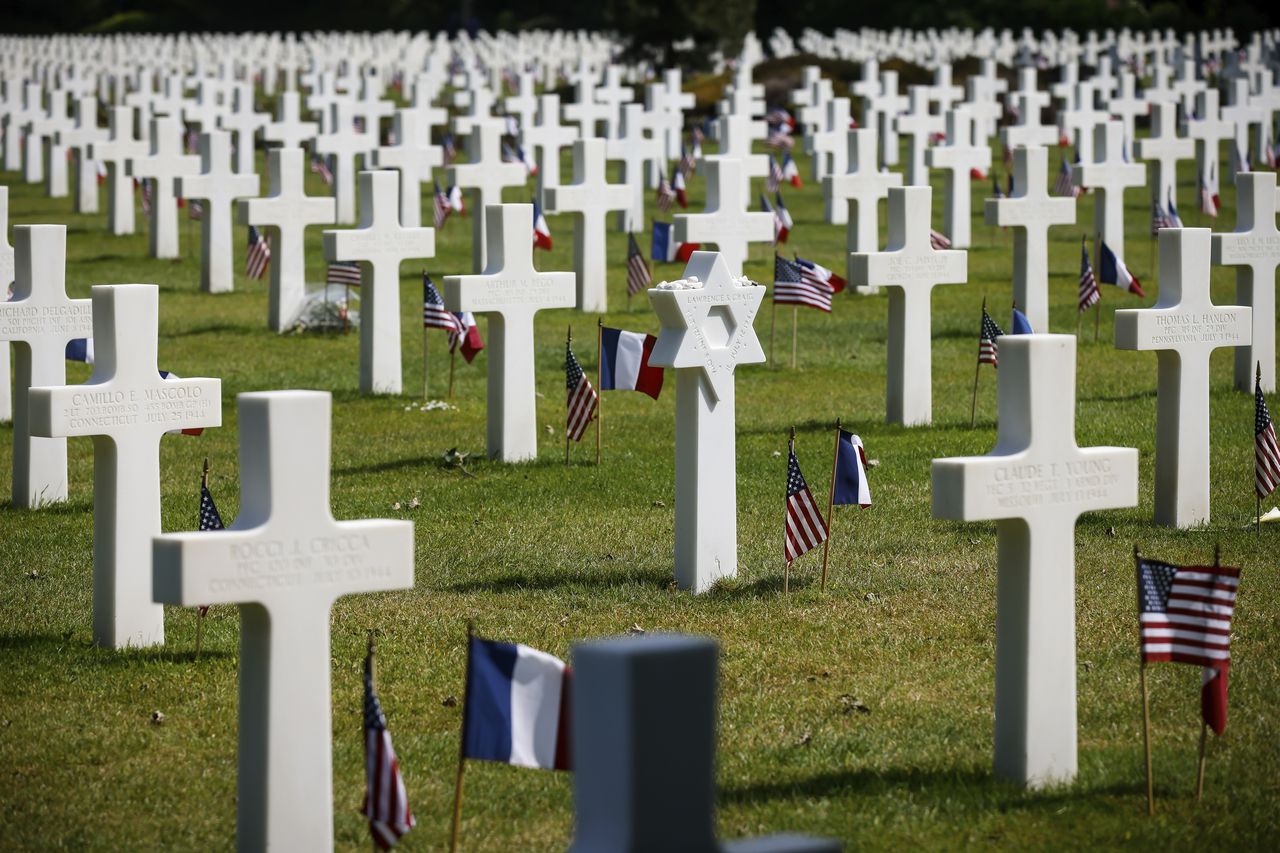Nearly 80 years after D-Day, some perspective on its toll
I always thought I knew you pretty well. In fact, I used to enjoy writing columns about your experiences in World War II, especially about the night you hurtled out of a C-47 into the night sky over France.
I wasn’t and still am not a military historian, but as your teenage daughter I gleaned enough information from you to avoid making a fool of myself.
It was 79 years ago, on ‘June 6, 1944, and you were a captain in the 101st Airborne. You and your men jumped into France ahead of the U.S. troops who stormed ashore at Normandy that morning.
Over the years, I’ve shared with readers excerpts from some of the letters you wrote to me when I was in college, when you couldn’t sleep and needed to ruminate on those days. Back then, people didn’t call your restless, chronic depression and anxiety “post-traumatic stress disorder,” but in retrospect, I know that that was the root of your problems.
It was the 1970s, however, and men like you didn’t see a shrink or talk to a therapist. Like other veterans of World War II, you did the best you could to hold a job and support your wife and five children. Some men were more successful at post-war, day-to-day survival than others.
When sheer willpower wasn’t enough, you relied on help from alcohol and Elavil — an antidepressant with a list of side effects and warnings that stretches to the moon and back.
Day after day, year after year, you slogged through life, hating yet depending on your government job. Luckily, you were blessed with a wife you loved dearly and five children of whom you were very proud.
You died of cancer at 58 years old. I didn’t realize then how young you were, because when you’re a 20-year-old woman, 58 sounds … well, it sounds old. Mama was a 52-year-old widow — and again, I didn’t realize how young she was.
I thought I knew you and understood what you had experienced and endured. But I was wrong.
Later this summer, I will turn 70. And only now, when I’m nearly 12 years older than you were when you died, do I realize how little I understood about who you were, what you were made of, what you were asked to do for your country, and what you — like thousands upon thousands of other Americans — said when your country called.
You said “yes.” You said, in essence, “I’ll do what I have to do, whether it’s in combat or support services, to help the United States win this war. If I have to be gone from my family for many months or years, if I have to go hungry or be cold and wet and miserable, and if I have to kill enemy soldiers — men with mothers and fathers, wives and children of their own — I will do that, too. If I am wounded, the medics will patch me up and send me back to the front.
“If I am killed in battle, so be it. Whenever I hit the Pearly Gates, I’ll tell St. Peter that I did what I thought I had to do. And as for what comes in the years after this greatest war the world has ever seen, if given the chance, I’ll survive the aftermath, too.”
That pretty much sums up your attitude, your personal courage, your character, and indeed your whole approach to life, Daddy; and I regret that it has taken me so many years — most of which we didn’t have together — to gain my perspective.
I call it perspective rather than wisdom, because I’m not sure I’m a whole lot wiser than I was when I was 20 years old and you were on your deathbed. Then, I was barely on the cusp of adulthood. Now I have two grown children — whom you never got to meet, of course — plus two grandchildren.
The two children are in their 30s and they are certified grownups, but to their father and me, they are also the little kids we once diapered, held in our arms and ushered through the emotional ups and downs of their adolescence and teen years. We never had to put them on a troop train or plane and then worry every single day for two, three or four years that they might be killed in combat or suffer from terrible emotional and physical scars afterward.
Especially, when I look at our grandchildren — a 5-year-girl and her 2-year-old brother — I see sweet, unharmed, unjaded and much-loved youngsters with their lives ahead of them.
I hope and pray they will never have to experience what you endured, and I thank you and honor you for your courage, your sacrifices and your tenacity — which, at long last, I can appreciate for what they were.
Frances Coleman is a former editorial page editor of the Mobile Press-Register. Email her at [email protected] and “like” her on Facebook at www.facebook.com/prfrances.
